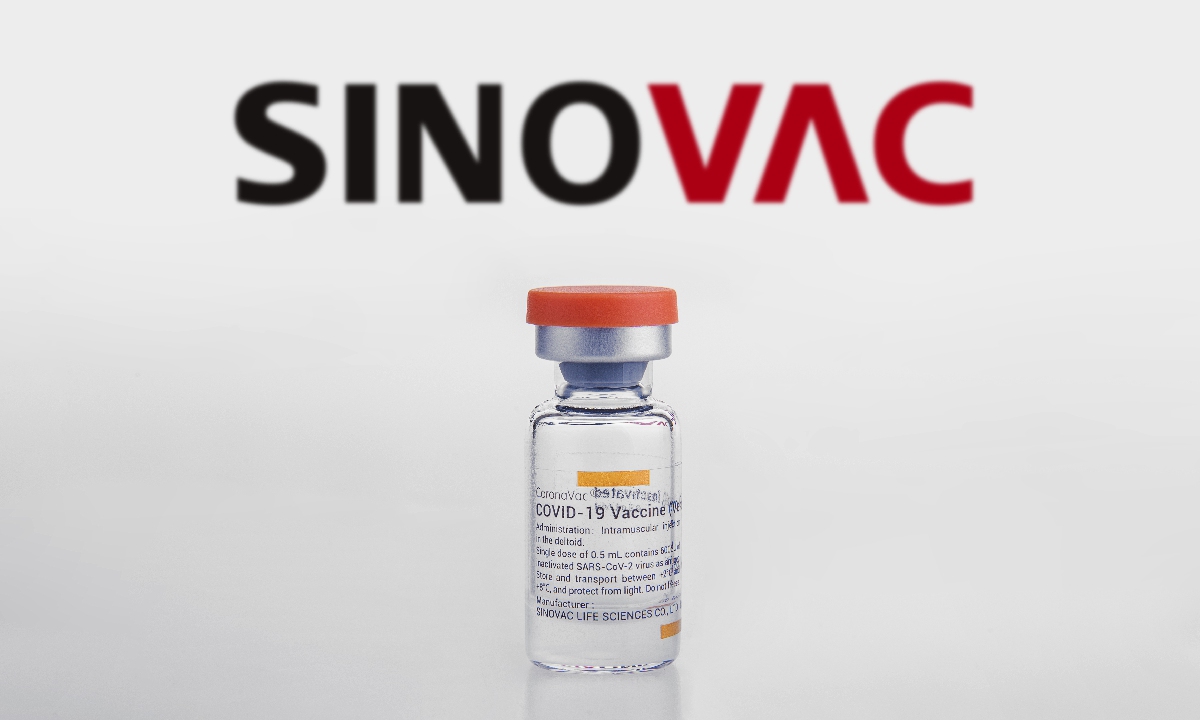Third shot of Sinovac COVID-19 vaccine offers big increase in antibody levels: study

Photo: courtesy of Sinovac
A third shot of Sinovac’s COVID-19 vaccine given six months or more after the second shot would result in a remarkable increase in antibody levels, a new study has found, and a two-dose schedule appears to generate good immune memory.
The results of the study were published on medRxiv on Friday for peer review.
The study found that although neutralizing antibody levels declined six months after two Sinovac shots, a two-dose vaccination schedule generates good immune memory, the Global Times learned from the company on Monday.
A third dose, given at an interval of six to eight months after the second dose, led to a strong boost in immune response, with geometric mean titers (GMTs) increasing to approximately 140.
Overall, 540 participants received a third dose in the study. In the 3 μg group, neutralizing antibody titers induced by the first two doses declined after six to eight months to below the seropositive cutoff (GMT: 4.1). When a third dose was given six to eight months after a second dose, GMTs assessed 14 days later increased to 137.9, or approximately three-fold.
This pattern is consistent with recent studies into booster immunization with the AstraZeneca vaccine, showing higher concentrations of total antibodies after a third dose.
The study also found that giving a third dose too early (28 days after the second dose) induced a much lower antibody level – only one third compared with a third dose given six or more months after a second dose.
Optimizing the timing of a booster dose should take into account immunogenicity, vaccine efficacy/effectiveness, the local epidemic situation, infection risk, and vaccine supply, according to the study.
None of the serious adverse events observed during the study were considered to be related to the vaccination.
Sinovac also released another study on its vaccine’s safety on Monday based on the administration of 7.12 million doses of Sinovac vaccine from November 27, 2020, through June 8, 2021, in Dalian, Northeast China’s Liaoning Province.
According to the study, 623 recipients of the vaccine reported adverse events, resulting in a rate of 87.5 events per 1 million doses. The age-specific rates of adverse events following immunization (AEFIs) ranged from 74.0 per 1 million doses among persons aged 45 to 59 years to 102.0 per 1 million doses among persons aged 18 to 44 years.
Among the 623 AEFIs, 544 were confirmed as common minor vaccine reactions. Very rare cases of anaphylaxis after vaccination were reported (five cases, or 0.7 per 1 million doses). Seven cases of AEFIs were classified as serious, but the available information indicated that there was no causal relationship with COVID-19 vaccination, according to the study.
No major safety concerns were identified during the COVID-19 vaccination campaign. There was no evidence of an increased risk of serious adverse events, according to the study.
Results of the study were released online on Saturday as preprints for The Lancet.
Global Times
